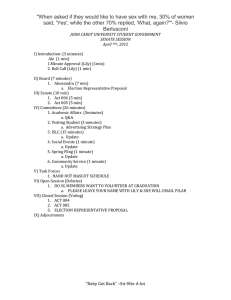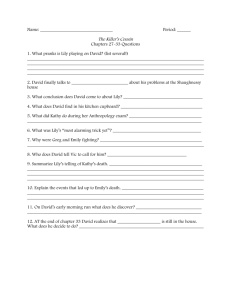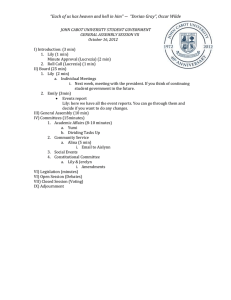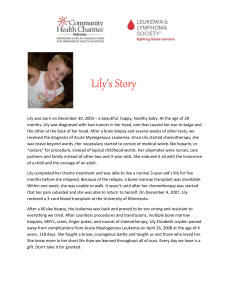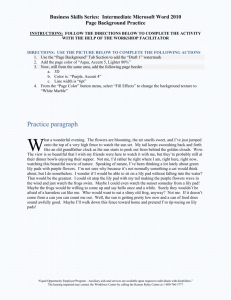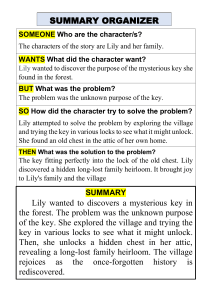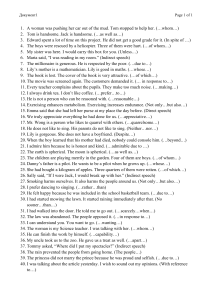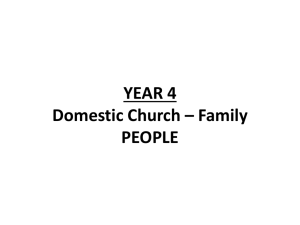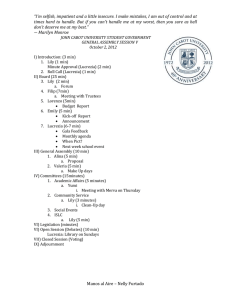Edith Wharton 1862-1937 • In 1885 marries Edward Wharton
advertisement
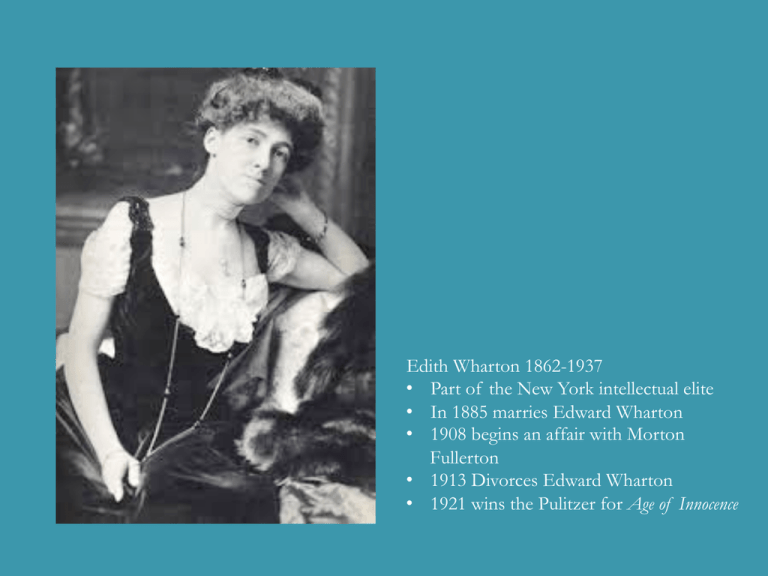
Edith Wharton 1862-1937 • Part of the New York intellectual elite • In 1885 marries Edward Wharton • 1908 begins an affair with Morton Fullerton • 1913 Divorces Edward Wharton • 1921 wins the Pulitzer for Age of Innocence “In what aspect could a society of irresponsible pleasure seekers be said to have, on the ‘old woe of the world,’ any deeper bearing than the people composing such a society could guess? The answer to my musings was that a frivolous society can acquire dramatic significance only through what its frivolity destroys. Its tragic implication lies in its power of debasing people and ideals. The answer, in short, was my heroine, Lily Bart.” “There was in Lily a vein of sentiment, perhaps transmitted from this source, which gave an idealizing touch to her most prosaic purposes. She liked to think of beauty as a power for good, as giving her the opportunity to attain a position where she should make her influence felt in the vague diffusion of refinement and good taste. She was fond of pictures and flowers, and of sentimental fiction, and she could not help thinking that the possession of such tastes ennobled her desire for world advantage. She would not indeed have cared to marry a man who were merely rich: she was secretly ashamed of her mother’s crude passion for money. Lily’s preference would have been for an English nobleman with political ambitions and vast estates” (36) “It was characteristic of her that she always roused speculation, that her simplest acts seemed the result of farreaching intentions” (5) Selden: “Ah, well, there must be plenty of capital on the lookout for such an investment. Perhaps you’ll beet your fate to-night at the Trenors” (14) “In sending her the cheque, Tenor had explained that he had made five thousand for her out of Rosedale’s ‘tip’, and had put four thousand back in the same venture, as there was the promise of another ‘big rise’; she understood therefore that he was now speculating with her own money, and that she consequently owed him no more than the gratitude which such a trifling service demanded” (86) “Lily’s drifting [is] not the mere desiccated fruit of a heartless capitalist system reducing all human relations of exchange, thus the clear counterpoint to an ideal domestic stability, but rather as a serious form of seeking, to which an older ideal of feminine fulfillment can no longer offer an adequate response […] We must insist that the only two options are the sentimental ones we confront at House’s end, between meaningless rootlessness and hearth and home, when in fact Lily’s earlier oscillations were predicted on the attempt to imagine a possibility not reducible to either side” (197-8)
